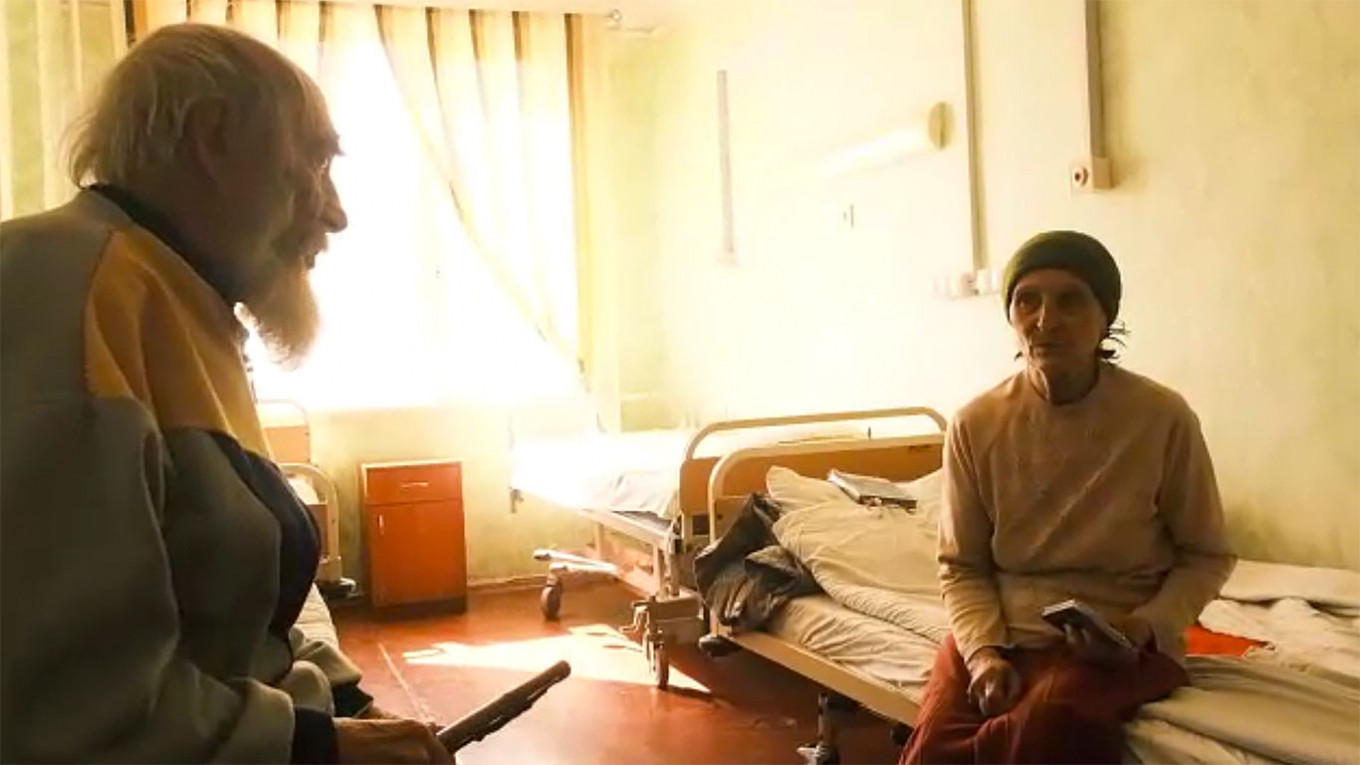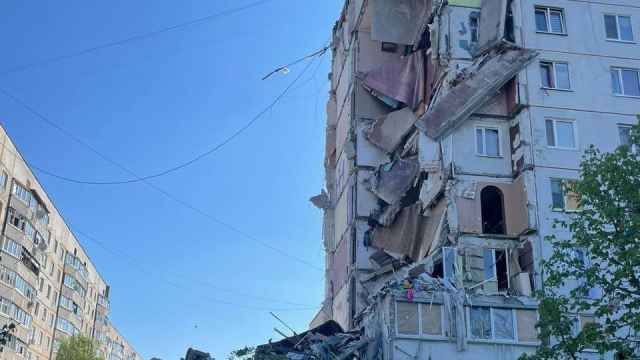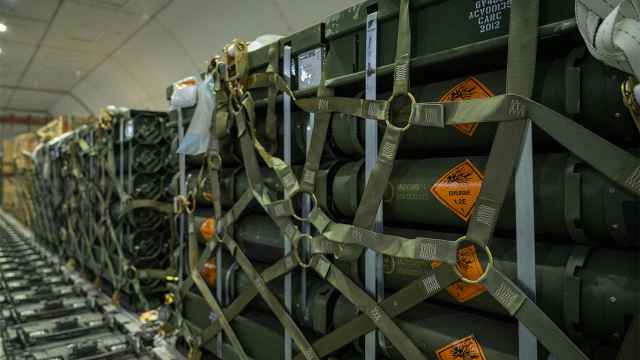An elderly Ukrainian woman who became a symbol of support for Russia’s invasion of Ukraine has been located in a Ukrainian hospital and filmed suggesting that her image was co-opted by Russian officials and state-owned media.
The pensioner known as "granny Anya" was last month caught on camera mistakenly greeting Ukrainian soldiers with a Soviet flag. The soldiers took the flag from her, and walked on it.
That original footage went viral in Russia, heavily promoted by state-owned news outlets, and images of "granny Anya" were widely displayed in public spaces. A top Kremlin official who unveiled her statue in the shattered port city of Mariupol this week said he wanted to locate Anya "to thank her and bow to her.”
The Ukrainian government’s center for strategic communications and information security shared Thursday a video of babushka Anya, whom it identified as Anna Ivanova, and her husband in a hospital in the city of Kharkiv.
“It’s awful that Russia came to us with war. Very awful,” Ivanova said in the footage.
“I was just thinking that I could congratulate the Russians for coming and tell them to stop the destruction and solve their problems peacefully,” she explained.
"Now I ended up a traitor," Ivanova said to the protests of her interviewers behind the camera.
Asked about her newfound fame among pro-war Russians, Ivanova said: “I wish there was no celebrity and no war.”
Social media footage posted earlier this week showed Ukrainian troops urging Ivanova and her husband to leave their damaged home on the outskirts of Kharkiv.
“Everyone else has left,” a soldier told the couple. “The Russians are 5 kilometers from here, they’re shooting at us and have shot up everything here. We'll call someone to get you out.”
The commander-in-chief of Ukraine’s army Thursday announced Ukrainian counteroffensives against Russian troops around Kharkiv and the neighboring town of Izyum.
A Message from The Moscow Times:
Dear readers,
We are facing unprecedented challenges. Russia's Prosecutor General's Office has designated The Moscow Times as an "undesirable" organization, criminalizing our work and putting our staff at risk of prosecution. This follows our earlier unjust labeling as a "foreign agent."
These actions are direct attempts to silence independent journalism in Russia. The authorities claim our work "discredits the decisions of the Russian leadership." We see things differently: we strive to provide accurate, unbiased reporting on Russia.
We, the journalists of The Moscow Times, refuse to be silenced. But to continue our work, we need your help.
Your support, no matter how small, makes a world of difference. If you can, please support us monthly starting from just $2. It's quick to set up, and every contribution makes a significant impact.
By supporting The Moscow Times, you're defending open, independent journalism in the face of repression. Thank you for standing with us.
Remind me later.






